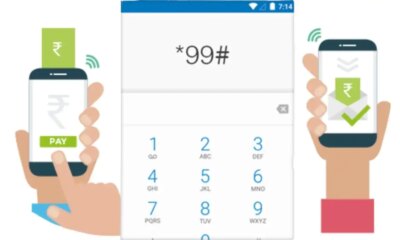How To
How To Remove MIUI 12 Bloatware Without Root

[ad_1]
Xiaomi’s smartphones are known to offer good features on a budget, but they also tend to come with a lot of pre-loaded apps. Some of them may be useful to you, others may not. And some keep tracking your data despite uninstalling them, because they have certain services that run in the background. In this guide we will tell you how to remove bloatware from Xiaomi smartphones without rooting them.
Before we get started, we would like to point out that we tried this method with a Redmi 9 Power. Xiaomi tends to have different builds of MIUI 12 for different smartphones, so you may or may not have the apps that we mentioned in this guide.
Another thing to mention is that removing certain apps or services using the desktop method may have bad consequences on your smartphone. In the best case scenario, you may end up partially losing some key functionality like calling or texting, and the worst case scenario would be ending up with a bricked device. So proceed with caution before moving on with the desktop method. We also have a video on the same topic, so do check it out in the embedded link below.
Smartphone method
First up, let’s walk you through how to uninstall the pre-loaded apps right from your smartphone.
- First figure out the apps that came pre-loaded with your Xiaomi smartphones. The newer smartphones come with fewer pre-installed apps. So our Redmi 9 Power only came with Amazon, Netflix, Facebook and LinkedIn, Mi Remote, Mi Credit, and Mi Doc Viewer as extra third-party apps.
- To remove them, go to Settings > Apps > Manage apps
- Now just select the apps you want to remove and then tap uninstall all.
Additionally, you can also actually try removing ads from your smartphone by using the methods we previously discussed in another guide.
Desktop method
While the previous method was pretty accessible and effective, there are some apps and services that it can’t remove. To get a deeper cleanse, you’ll have to connect your smartphone to a PC and use a software called ADB or Android Debugging Bridge. We will be trying out this method on Windows, but there’s also a way to do it on Macs that involves the use of Homebrew to let you connect your Android smartphone.
Once you’re done downloading ADB on your Windows system, you’ll have to extract it using a file archiver like 7zip or Winrar. Once this is done, open the folder where you just extracted this, click on the address bar and type cmd. This will open the command prompt right from the ADB directory.
Now you will have to prep your smartphone to connect it to your desktop by enabling Developer options on your smartphone. To do this:
- Go to Settings > About phone
- Tap the MIUI Version multiple times.
- Now go to Additional settings > Developer options.
- Here, enable USB debugging. This will make sure you will connect to a PC properly.
Once this is done, connect your smartphone to your PC using a USB cable and then type adb devices in the command prompt .
You will now have to authorise your PC on your smartphone to get access to your smartphone. If it doesn’t work at the first attempt, you may have to type the same command, adb devices, again and repeat the process.
Now you’ll have to download Xiaomi Debloater .jar file from github and install the Oracle Java SE Development Kit. This will let you open the .jar file.
Once you’re set with that, open the .jar file. Now you’d be able to see all the apps present on your smartphone.
Here’s a list of apps that you may consider uninstalling.
Now it’s time to select and remove the apps. To do so:
- Tick on the boxes corresponding to the apps you want to delete.
- Click Uninstall! to remove the apps.
Which apps did you remove using this method? Let us know via the comments. For more tutorials, visit our How To section.
Is LG Wing’s unique design alone enough to help it succeed in India? We discussed this on Orbital, our weekly technology podcast, which you can subscribe to via Apple Podcasts, Google Podcasts, or RSS, download the episode, or just hit the play button below.
[ad_2]
Source link











